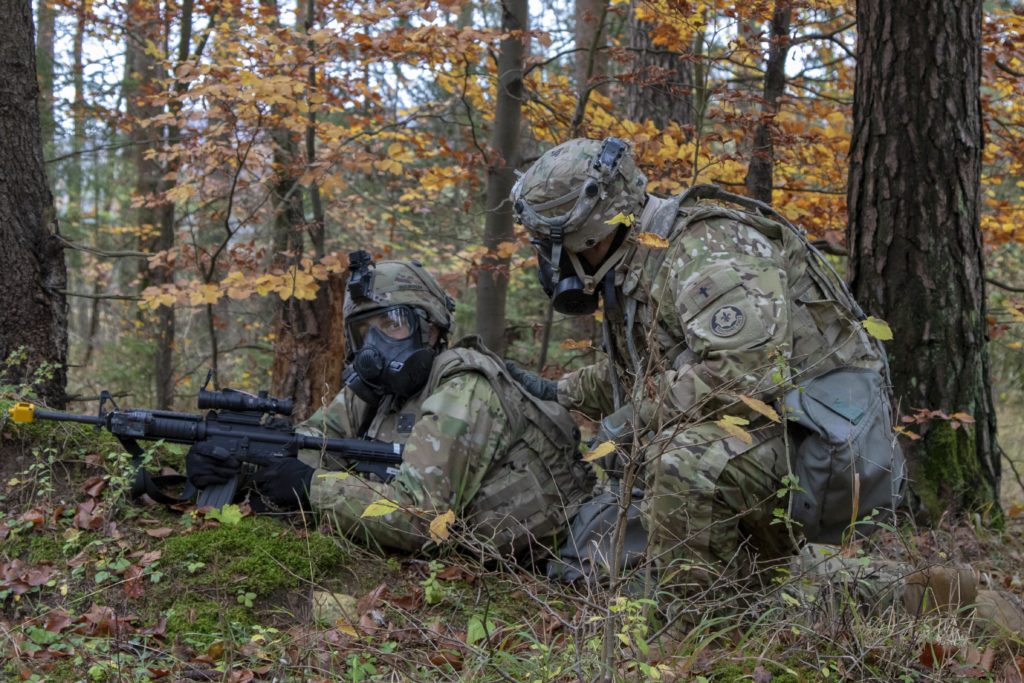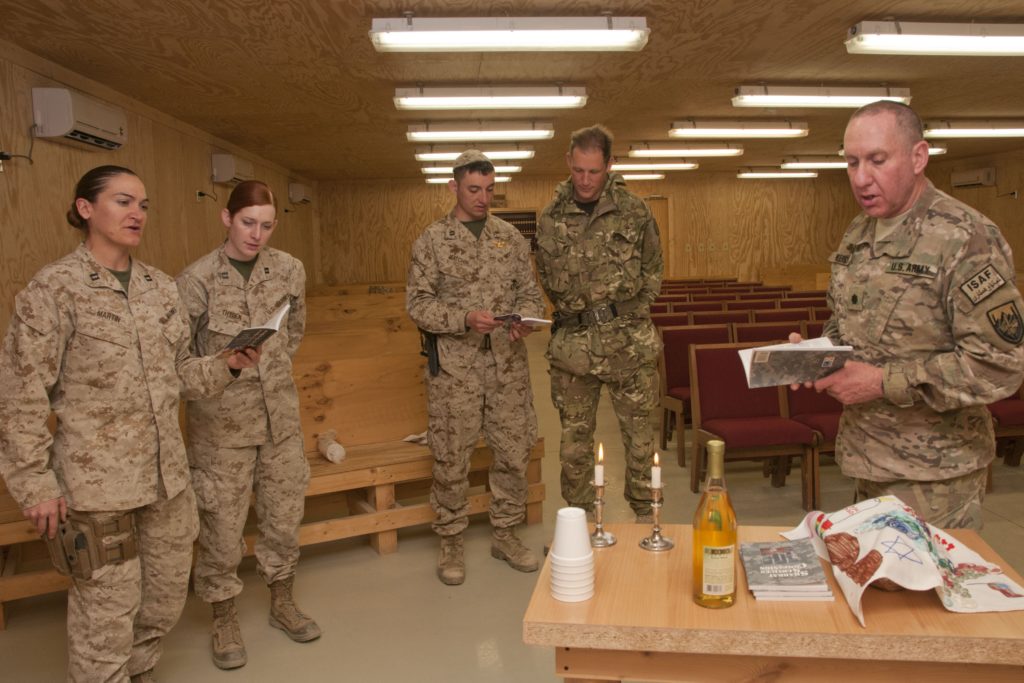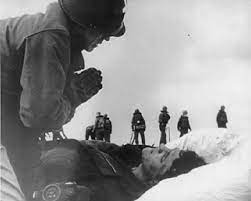“For Thou Hast Girded Me With Strength Unto the Battle…” Psalm 18:39
In July of 1775, the Continental Congress authorized each regiment of the Continental Army to have a chaplain on the rolls at the paygrade of captain. This act signified the importance of religious observance in the military before we were even a country. Priests going into battle with the troops is probably a practice as ancient as human conflict itself. The Hebrews of the Bible took their priests into battle with them. We know that the pagan rights of the Roman Empire accompanied the Roman legions on their campaigns. The emperor himself was considered a God and his troops were seen as an extension of his will.

Over more than two centuries the United States has expanded the Chaplain Corps to reflect the changing religious affiliations of the troops. Catholic chaplains were added during the war with Mexico; black and Jewish chaplains were stood up during the Civil War. Today, there are some 221 different religious affiliations accommodated by the Chaplains of the Army, Navy, Air Force Marines, and Coast Guard. And while chaplains may have a particular religious affiliation themselves, they are also able to perform the religious rites of other faiths as well, like Judaism, Islam, and even Buddhism.
Now, there is talk of adding atheist chaplains as well, which may seem too accomodating. But in a country in which religious belief may seem out of fashion in certain circles, the military encourages its members officially to hold to their religious beliefs and bends over backward to make religious accommodations to people of faith. These accommodations include things like grooming, uniforms, time and places to pray, and even dietary requirements.
Religious Belief Is a Pillar of our Military

Religious belief is predominant in the military branches. With all the talk of diversity and inclusion, it is often missed that the religious breakdown of the U.S. military is every bit as diverse as the rest of American society. According to a Congressional Research Service report, in 2019 more than 70 percent of servicemembers identified themselves as Christians of one denomination or another. This broadly reflects the nation as a whole except that only 2.9 percent of servicemembers have no religious beliefs versus about six percent of the U.S. population overall.
For many people in uniform, religious belief helps them to get through the more difficult aspects of military service, like long-term separation from their families, rough conditions on deployment, and combat. It also helps them keep their moral compass centered in a world that can be pretty brutal once you go outside the wire. And servicemembers being exposed to the wide variety of religious beliefs in this country probably makes them more tolerant of others too.
Here at SOFREP, our staff is spread out all over the country and in Europe and Asia too. We’re pretty sure our staff practices a variety of religions but we really don’t know because we’ve never really asked. It’s just not that important to us to know; it doesn’t reflect on their job performance here. In contrast with a good part of the rest of the world currently fighting wars over religious differences, the U.S. may be the most religiously tolerant country because we were founded, in part, on the principle of religious freedom.
It was John Adams who said, writing to the officers of the First Brigade of the Third Division of the Militia of Massachusetts in 1798, that “Our Constitution was made only for a moral and religious People. It is wholly inadequate to the government of any other.” Adams was talking about how the moral restraints of religious belief would make Americans more likely to live up to the ideals expressed in our Constitution, one of which was the tolerance of others holding different beliefs. You see, in 1798 as well the world had a problem with wars fought over religion.
“Comforting and Encouraging Men of all Faiths”
The featured photo of this story is of Rev. Joseph O’Callahan, a Catholic chaplain. He is shown comforting sailor Robert Blanchard aboard the aircraft carrier USS Franklin during World War II. On that day, the USS Franklin was hit by two 550lb bombs dropped by a single Japanese bomber. When the bombs hit her, she had 31 fueled and armed aircraft running on her deck as she was launching a strike. Over 1,000 sailors were killed or wounded in the inferno. O’Callahan not only ministered to and helped evacuate the wounded and dead, but also directed efforts to throw bombs and ammunition over the side and even manned a firehose and tried to cool down 500lb bombs that were smoking hot and rolling about the deck. Chaplain O’Callahan would receive the Medal of Honor for his actions that day. The MoH citation praised his leadership and personal acts of selfless bravery. But we suspect that he was probably most happy to be recognized for “comforting and encouraging men of all faiths.”
We think that the phrase “comforting and encouraging men of all faiths” from O’Callahan’s MoH citation, may best describe what military chaplains do for our men and women in uniform even if they aren’t religious. And on this Easter Weekend, we offer our respect and support for the important work they do for the troops and the country.
Happy Easter, in any way you choose to observe it, to our men and women in uniform from all of us here at SOFREP.










COMMENTS